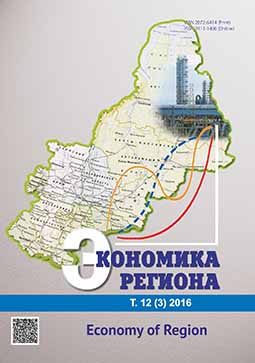Постсоциалистическая трансформация стран Центральной и Восточной Европы на рубеже веков: региональное развитие и экономическое неравенство
The Post-Socialist Transformation of Central and Eastern European Countries at the Turn of the Century: Regional Development and Economic Inequality
Author(s): Askar Akayevich Akayev, Yury Rolandovich Ichkitidze, Askar Islamovich Sarygulov, Valentin Nikolayevich SokolovSubject(s): Economy, Geography, Regional studies, Economic history, Social differentiation, Transformation Period (1990 - 2010), Post-Communist Transformation
Published by: Институт экономики Уральского отделения Российской академии наук
Keywords: regional development;economic inequality; integrated modernization; economic transformation; new states; clustering; institutional reforms; social differentiation; middle class;
Summary/Abstract: The evolution of the socio-economic systems is a non-linear process and it contains periods with smooth changes and subsequent periods of sharp jump transformation. The general design of new prospects opens at a stage of the birth of evolutionary processes, their forecasting requires the analysis of the historical prerequisites and risks, which are closely integrated to the change of moods in society. With the collapse of the Soviet Union, the newly independent states have passed the transformational and evolutional stage of development from the regional economy (they actually were the regions) to the economy of the state; the Central and Eastern European countries have experienced a dramatic “drift” to the European Union. In the article, the results of almost 25 years’ transformation of these states are considered. New states, formed as a result of the collapse of the USSR, passed throughout three types of transformation. Firstly, it is the transformation at the ideological level. The transformation of the second type was purely economic. The third type can be characterized as the institutional (including structural and financial) transformation. It is shown that one of the important reasons for the modest economic performance in the post-Soviet space is that newly independent states ignore and do not use in the practice the principles of regional policy and regional modernization. One of the important characteristic of the social and economic evolution of the countries of Eastern Europe after 1990 became the process of stratification and social differentiation of society with an insufficiently strong middle class and the polarization in income levels between the different regions. The increasing polarization in the income levels of the various regions acts as the dominating trend of the growing economic inequality.
Journal: Экономика региона
- Issue Year: 12/2016
- Issue No: 3
- Page Range: 613 - 626
- Page Count: 14
- Language: Russian

